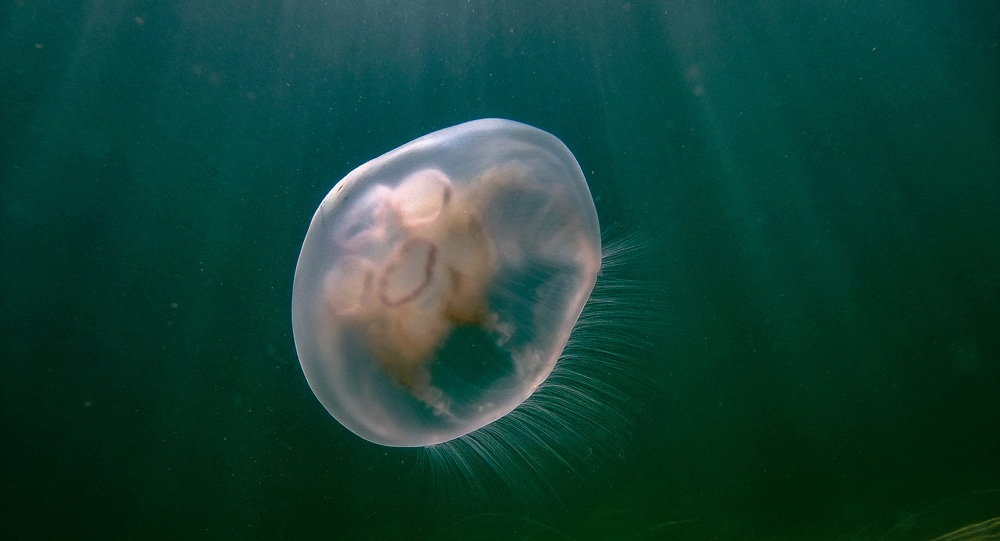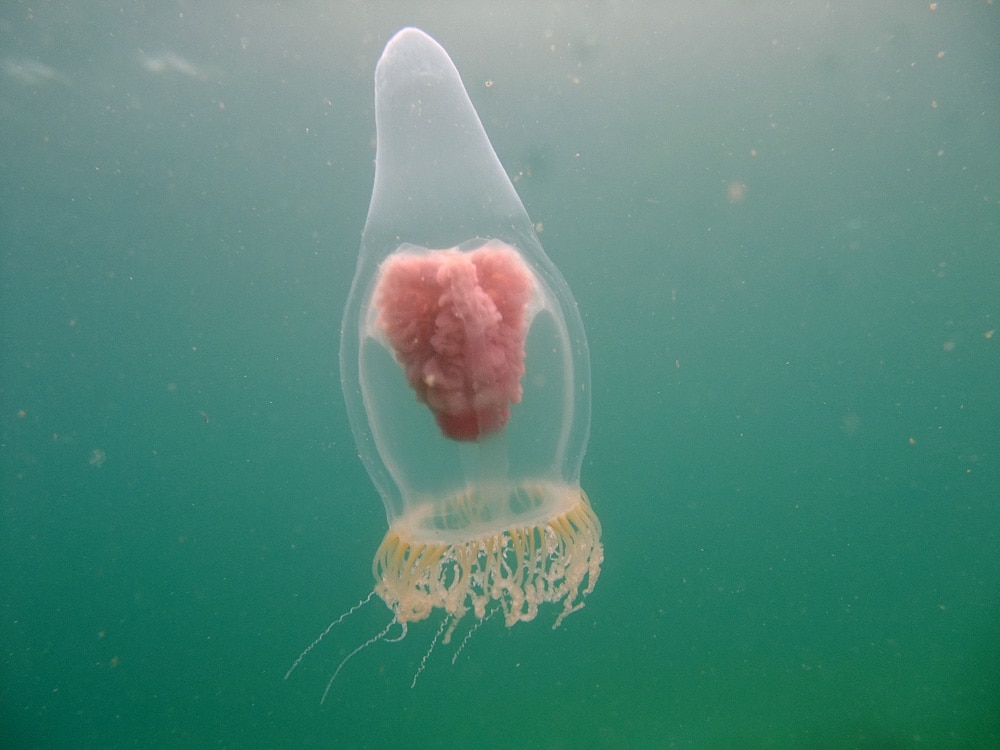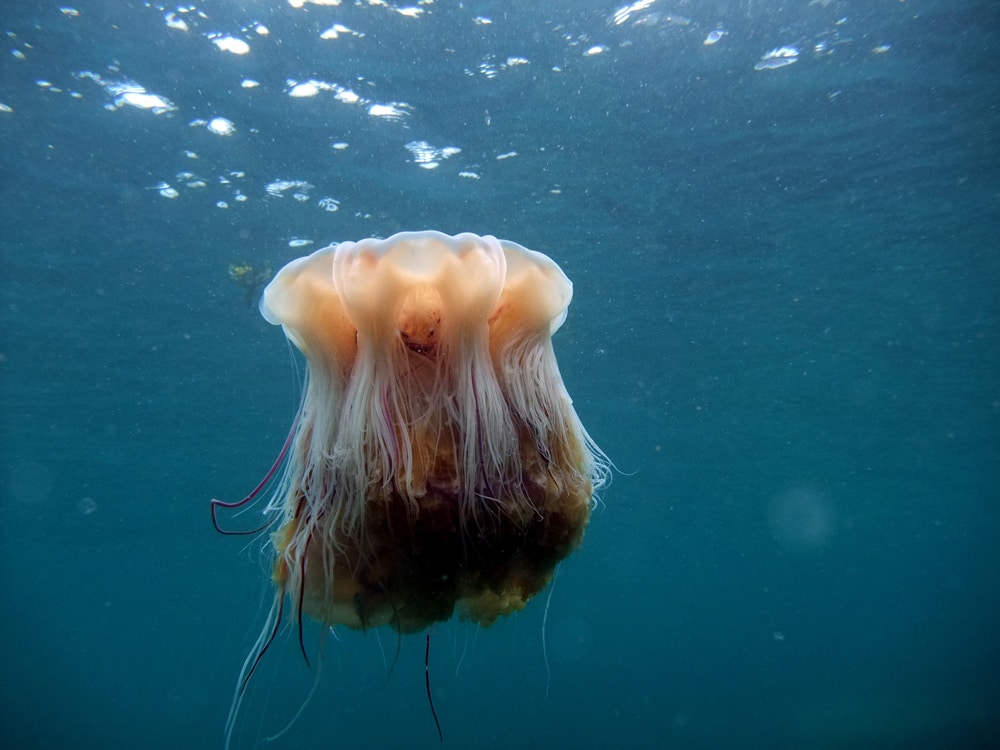News
How well do you know your jellies? Marine Conservation Society launches new quiz for jellyfish season

 As jellyfish season is well and truly upon us, you’re likely to see more jellyfish around UK shores. The Marine Conservation Society is once again calling on beachgoers to report jellyfish sightings on the charity’s website as part of its national Jellyfish Survey.
As jellyfish season is well and truly upon us, you’re likely to see more jellyfish around UK shores. The Marine Conservation Society is once again calling on beachgoers to report jellyfish sightings on the charity’s website as part of its national Jellyfish Survey.
This year the charity is also testing the public’s jellyfish identification skills. Teaming up with the University of Plymouth, the Marine Conservation Society has launched an online Jellyfish ID Quiz to understand how easy it is for people to identify UK jellyfish with a view to improving the survey.
The Jellyfish Survey started in 2003 with the intention of understanding more about the distribution of jellyfish in the UK’s waters and how this affects leatherback turtles. Leatherbacks migrate to UK waters to feed on plentiful jellyfish bloom through the summer. However, with limited data on where these blooms happened, the Marine Conservation Society sought to gather data to identify potential feeding hotspots for leatherback turtles.
To date, thousands of people have shared sightings of jellyfish from around the UK, helping to build an extensive data set of six jellyfish and two jellyfish-like hydrozoan species.
Understanding trends in jellyfish distribution and numbers can help with more than just understanding leatherback turtles. Large jellyfish blooms can have real economic impacts on marine industries, and may also indicate the impacts of climate change on our ocean.
In 2014, with partners from the University of Exeter, the Marine Conservation Society published the first paper from the survey data, confirming key information about UK jellyfish and including the first distribution maps of the surveyed species. The paper confirmed, for example, that adult barrel jellyfish have a largely western distribution in UK seas and can survive UK winters.
The paper also identified south-west England and Wales as a jellyfish hotspot, where other work has shown a relatively high probability of leatherback turtle sightings for the UK.
Since the 2014 paper, the Jellyfish Survey has recorded notable jellyfish events such as massive and extensive annual blooms of barrel jellyfish and several summers of mass strandings of Portuguese Man o’ War.
The University of Plymouth is working with the Marine Conservation Society to analyse this most recent data. The charity hopes to run the Jellyfish Survey over a long time period to see what happens to the distribution and frequency of mass jellyfish blooms over time and attempt to explore any links with big-picture factors such as climate change.
Dr Peter Richardson, Head of Ocean Recovery at the Marine Conservation Society: “We’ve been running our National Jellyfish Survey citizen science programme for more than 17 years and, thanks to the participation of thousands of jellyfish spotters sending us their records, we are now starting to understand more about our UK jellyfish species.
“As we start to enjoy the UK’s beautiful beaches again this year, we want as many beachgoers as possible to get involved and send us their jellyfish records. Remember, you can look, but please don’t touch the jellyfish…some have a painful sting!”
The Marine Conservation Society wants to continue building on this survey data, helping to develop an ongoing understanding of jellyfish trends in UK seas. To ensure that the survey is as easy-to-use as possible, the charity is also asking members of the public to take the Jellyfish ID Quiz. Working with experts at Plymouth University, the quiz aims to find out how easy it is for people to identify the eight jellyfish and jellyfish-like species that visit the UK using the photo ID guide, with the intention to update and improve the Jellyfish Survey so it can run for many more years to come.
Catriona Duncan, MSc Student at the University of Plymouth: “Citizen science is a really valuable way to gather information and engage people with the marine environment, so we want to make sure the national Jellyfish Survey is as engaging and easy to use as possible. Jellyfish are an animal so many of us are familiar with, but surprisingly little is known about their distribution around UK waters and what causes them to bloom and increase in numbers. This project is a fantastic opportunity to help find ways to improve the survey and encourage more people to get involved for years to come.”
To take the Jellyfish ID Quiz and test your knowledge click here, and to find out more information and get involved in the National Jellyfish Survey please visit the Marine Conservation Society’s website – https://www.mcsuk.org/sightings/
Photo credit: Peter Bardsley
Gear News
Introducing the TR-80, IR-50 and CS-30 Regulators from DYNAMICNORD

Whether you are a beginner or a professional diver – with the three new main regulators from DYNAMICNORD, everyone will find their favourite regulator. They all look super stylish.
Excellent performance with the TR-80
Quality and performance are the be-all and end-all for regulators. It is not for nothing that the TR stands for Tec Reg. The innovative design of the TR-80 guarantees absolute reliability – even in ice-cold waters.

Perfect breathing effort at 0.8 J/l / certified for diving in waters below 10 degrees / structural design made of solid brass for best cold protection / membrane-compensated design with dry seal of the first stage / reduced exhalation effort thanks to optimized exhalation membrane and bubble deflector / adjustable Venturi (dive/predive) and adjustment knob for individual inhalation comfort / innovative design of the front cover prevents free-flow in strong currents or when diving with scooters / design made of sandblasted brass, matt chrome finish / 2 HP and 4 LP outlets / mouthpiece made of high-quality, anti-allergic silicone for maximum comfort.


Amazing underwater adventures with the IR-50
The IR-50 is the top regulator for advanced and experienced divers. Natural breathing is the essence of this regulator.

Ideal breathing effort at 0.8 J/l /certified for diving in waters below 10 degrees / compensated membrane / adjustable venturi (dive/predive) and adjustment knob for individual inhalation comfort/ outlet valve and deflector for minimum exhalation effort and reduction of bubbles on the face / design made of sandblasted brass, matt chrome finish / 2 HP and 4 NP outlets / mouthpiece made of high-quality, anti-allergic silicone for maximum comfort.


The Workhorse – our CS-30
For diving centres and diving beginners – the workhorse stands for strong construction, reliability and robustness. Perfect for your training.

Optimal breathing effort at 0.8 J/l /recommended for diving in waters above 10 degrees / non-compensated piston / adjustable venturi (dive/predive) / outlet valve and deflector for minimum exhalation effort and reduction of bubbles on the face / design made of sandblasted brass, matt chrome finish / 1 HP and 3 NP outlets / mouthpiece made of high-quality, anti-allergic silicone for maximum comfort.


Octopus OP-30
The OP-30 is the ideal addition to all DYNAMICNORD regulators. It is identical in construction to the CS-30.

The TR-80, IR-50, CS-30 (DIN & INT) regulators and the Octopus OP-30 are available from DYNAMICNORD dealers and in the online store.
DYNAMICNORD – Your Outdoor Companion.
Marine Life & Conservation
Paul Watson Released as Denmark Blocks Japan’s Extradition Bid

Renowned anti-whaling activist Paul Watson has been released from custody in Greenland after spending five months in detention. Denmark’s Justice Ministry rejected Japan’s request for his extradition, citing insufficient guarantees that his time already served in custody would be credited against any potential sentence.
The 74-year-old Canadian-American was arrested on July 21 in Nuuk, Greenland’s capital, when his ship docked to refuel. His arrest was based on a 2012 Japanese warrant related to a 2010 encounter in Antarctic waters. Japan alleged Watson obstructed operations and caused damage to a whaling research ship during efforts to disrupt illegal whaling. Watson has consistently denied these claims, maintaining his commitment to marine conservation.
Denmark, which oversees extradition matters for Greenland, concluded that while the legal conditions for extradition were met, the lack of assurances from Japan regarding time-served credit made extradition untenable.
In a video shared by his foundation, Watson expressed gratitude and relief, saying, “After five months, it’s good to be out… and good to know they’re not sending me to Japan.” He added that the most difficult part of his time in custody was being separated from his two young sons.
Watson is a pioneering figure in marine conservation, known for founding the Captain Paul Watson Foundation in 2022 after decades of activism with the Sea Shepherd Conservation Society. His bold efforts to defend marine life have earned him widespread support, including from celebrities and conservationists. His work has also been featured in the acclaimed reality TV series Whale Wars.
Watson’s lawyer, Jonas Christoffersen, praised the decision, stating, “We are happy and relieved that Paul Watson is now free.” He added that Watson is eager to reunite with his family and continue his vital work.
The arrest occurred while Watson’s vessel, the M/Y John Paul DeJoria, was en route to the North Pacific with a team of 26 volunteers to intercept a Japanese whaling ship. His foundation described the arrest as politically motivated and emphasized that Watson’s actions were focused on ending illegal whaling practices.
Japan resumed commercial whaling in 2019 after leaving the International Whaling Commission, asserting that whale meat is a cultural tradition. Conservationists, however, continue to challenge these practices, highlighting their impact on marine ecosystems.
Despite the challenges, Watson remains steadfast in his mission to protect marine life and bring attention to whaling practices. His dedication to ocean conservation has made him a globally respected advocate for the environment.
-

 News2 months ago
News2 months agoIconic SS United States to become the World’s Largest Artificial Reef
-

 News3 months ago
News3 months agoBook Review – 52 Assignments: Underwater Photography
-

 Gear News3 months ago
Gear News3 months agoDYNAMICNORD – New German diving brand enters the British market
-

 News3 months ago
News3 months agoExploring Cenote El Pit: A Diver’s Dream
-

 Gear News3 months ago
Gear News3 months agoTry BARE drysuits (and maybe even win one!) this Friday with Sea & Sea at North West Dive Fest
-

 Marine Life & Conservation3 months ago
Marine Life & Conservation3 months agoBook Review: Coral Triangle Cameos
-

 Blogs3 months ago
Blogs3 months agoDive the Egyptian Red Sea this Autumn with Regaldive
-

 News3 months ago
News3 months ago2024 Ocean Art Underwater Photo Competition Announced

















